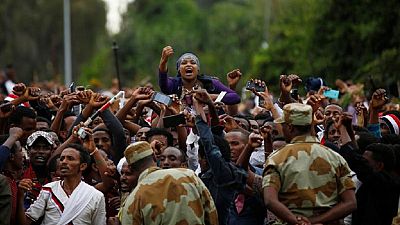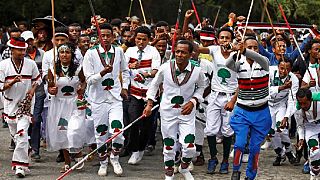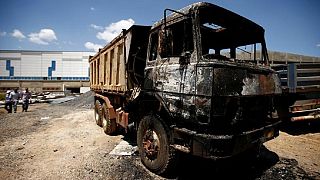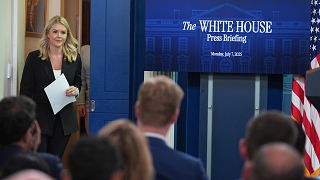Ethiopia
Ethiopia’s Oromia regional state has confirmed that there will be no armed security personnel at this year’s Irreecha festival.
Security on the day will be handled by unarmed police and another 300 young people whose mandate will be to prevent unethical behaviour.
A top official involved in the organization of the annual cultural festival of the Oromo people further disclosed that it would be kept strictly within its cultural boundaries with no politics allowed.
The festival takes place every October 1 in the town of Bishoftu – located some 40km southeast of the capital, Addis Ababa.
The event took an ugly turn last year when a stampede led to loss of lives. The government said over 50 people were killed as a result and declared three days of national mourning.
Activists and rights groups, however, blamed the highhandedness of security forces for the incident.
Deadly protests that followed led to the imposition of a state of emergency about a week later, on October 9.
The six-month measure was reviewed upon its initial expiration in April this year. It was lifted in August this year, bringing the total duration to 10 months.
Addis Ababa has flatly rejected calls for an independent probe into the incident stressing that it had internal mechanisms to do that. Rights groups have dismissed efforts by the Ethiopian Human Rights Commission (EHRC) as lacking credibility.
A recent Human Rights Watch (HRW) report titled ‘Fuel on the Fire,’ reiterated the position that the government’s undue interference in a purely cultural event was to blame for the deadly disruption in 2016. “Last year’s tragedy was triggered by the government’s botched effort to control the event,” HRW senior researcher Felix Horne said.
“This year, the government should consider whether a much lighter security force presence would best serve to minimize the potential for violence, and in any case, ensure that security force personnel minimize and seek to avoid any use of force,” he added.
The Oromia region is one of Ethiopia’s most restive regions – despite being one of the largest and most populated. It was at the heart of deadly anti-government protests that rocked the country leading to security crackdown and largely a contributory factor to the state of emergency.














01:13
China and Ethiopia reaffirm alliance at meeting on sidelies of BRICS summit
02:20
Young designers grace the runway at Fashion Finest Africa’s show in Lagos
00:42
Iran's Supreme Leader makes first public appearance since the start of Israel-Iran war
01:06
Brazil launches major security operation ahead of BRICS Summit
01:12
US President Trump announces surprise summit with five African Nations
01:12
ECOWAS calls for restraint in violent protests in Togo